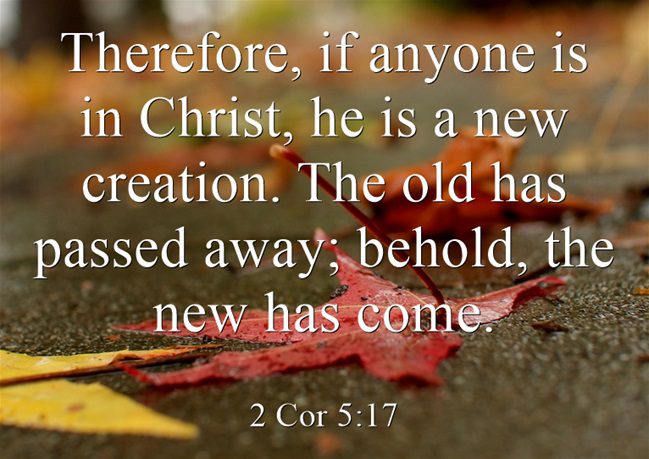Why did Paul write the Book of 2nd Corinthians? Are there essentials for us to learn from in this book?
The Author
Paul is obviously the author of 2nd Corinthians because in it begins in similar fashion to the way 1st Corinthians started with; “Paul, an apostle of Christ Jesus by the will of God, and Timothy our brother, To the church of God that is at Corinth, with all the saints who are in the whole of Achaia” (2nd Cor 1:1) and wrote it around AD 56. Paul had apparently written another letter called “the strong letter” which has been lost but he was overjoyed that they accepted it well.
The Purpose of 2nd Corinthians
The Apostle Paul would not have ever written the letter if he didn’t have good reason to and he did as the church still had issues with sexual immorality in the church (2nd Cor 12:21) but Paul was also worried about false teachers infiltrating the church, writing “I am afraid that as the serpent deceived Eve by his cunning, your thoughts will be led astray from a sincere and pure devotion to Christ. For if someone comes and proclaims another Jesus than the one we proclaimed, or if you receive a different spirit from the one you received, or if you accept a different gospel from the one you accepted, you put up with it readily enough”(2nd Cor 1:3-4). It may be that Paul defends his apostolic authority in 2nd Corinthians six, seven, and ten because of this “different gospel” by these “cunning” teachers who are always attacking Paul’s reputation.
Cheerful Giving
Paul wanted the church at Corinth to imitate what the churches in Macedonia had been giving. Not only did they give generously, “they gave according to their means, as I can testify, and beyond their means, of their own accord, begging us earnestly for the favor of taking part in the relief of the saints— and this, not as we expected, but they gave themselves first to the Lord and then by the will of God to us” (2nd Cor 8:3-5) and so Paul made the arrangements for the gift to be picked up and wrote, “I am sending the brothers so that our boasting about you may not prove empty in this matter, so that you may be ready, as I said you would be. Otherwise, if some Macedonians come with me and find that you are not ready, we would be humiliated—to say nothing of you—for being so confident. So I thought it necessary to urge the brothers to go on ahead to you and arrange in advance for the gift you have promised, so that it may be ready as a willing gift, not as an exaction” (2nd Cor 9:3-5). To encourage them to think about it, he wrote that “whoever sows sparingly will also reap sparingly, and whoever sows bountifully will also reap bountifully. Each one must give as he has decided in his heart, not reluctantly or under compulsion, for God loves a cheerful giver” (2nd Cor 9:6-7) because “God is able to make all grace abound to you, so that having all sufficiency in all things at all times, you may abound in every good work” (2nd Cor 9:8).
The Gospel in Summary
You can find one verse that describes the gospel almost completely and it’s found in 2nd Corinthians 5:21 and says that it was “For our sake he made him to be sin who knew no sin, so that in him we might become the righteousness of God.” He knew no sin. That’s all we ever knew. He became sin for the sinful. In this way, God would see us as having Jesus’ own righteousness. That’s the only way into the kingdom. This entrance begins with repentance and faith and that means turning away from and forsaking sin and turning to and trusting in Christ. When that happens “he is a new creation. The old has passed away; behold, the new has come” (2nd Cor 5:17) because “God, who through Christ reconciled us to himself and gave us the ministry of reconciliation; that is, in Christ God was reconciling the world to himself, not counting their trespasses against them, and entrusting to us the message of reconciliation”(2nd Cor 5:18-19). That makes all of us “ambassadors for Christ, God making his appeal through us. We implore you on behalf of Christ, be reconciled to God” (2nd Cor 5:20).
Conclusion
The Book of 2nd Corinthians is still applicable to today’s church and the believer of the 21st century. We all should understand that we are ambassadors for Christ and God is making His appeal through you and me to those who are lost. An ambassador travels and represents the country from which they live and so we too have a responsibility to be good ambassadors and represent the kingdom of heaven so that we might bring as many with us as God might call.
Article by Jack Wellman
Jack Wellman is Pastor of the Mulvane Brethren Church in Mulvane Kansas. Jack is also the Senior Writer at What Christians Want To Know whose mission is to equip, encourage, and energize Christians and to address questions about the believer’s daily walk with God and the Bible. You can follow Jack on Google Plus or check out his book Teaching Children the Gospel available on Amazon.












